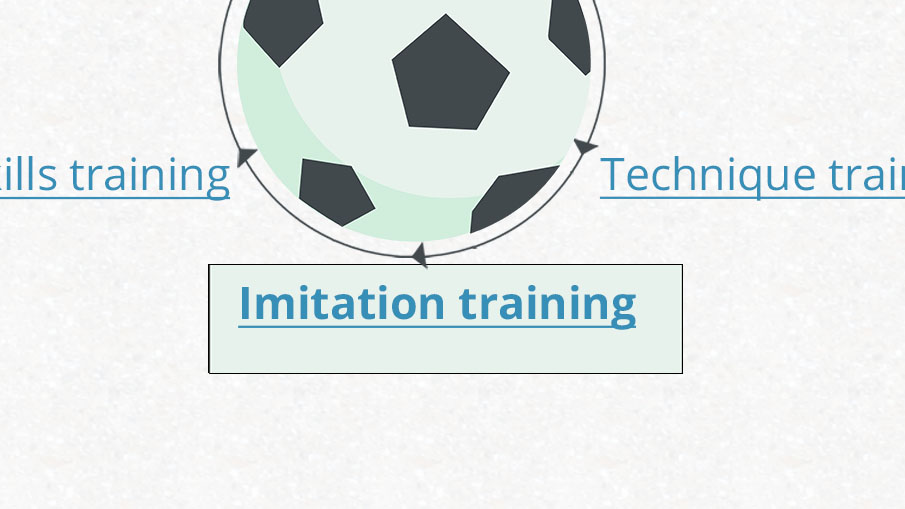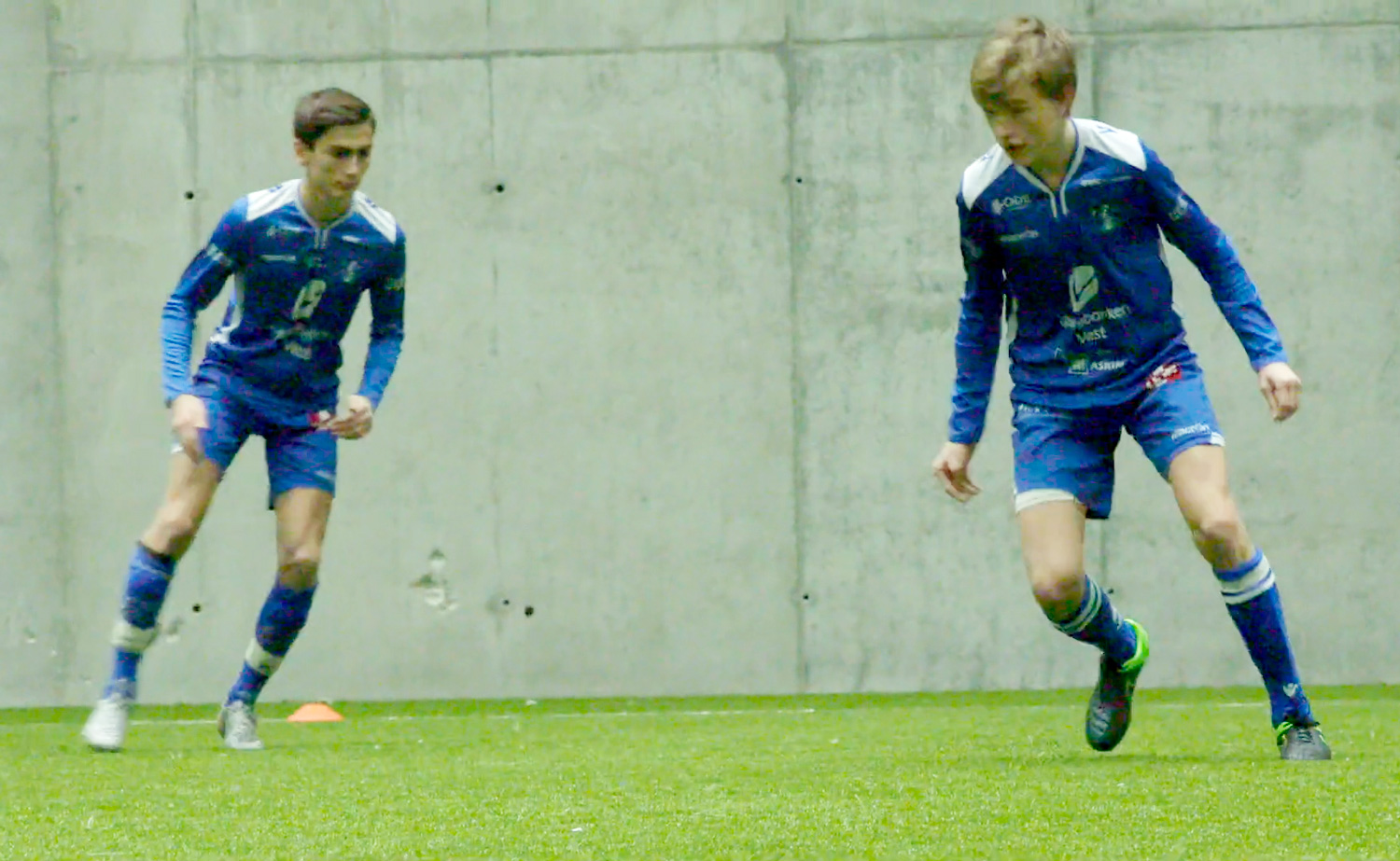
Illustration: Giske Defending.
Imitation training is very similar to visualisation; however, it involves physically practicing a range of different scenarios as opposed to merely visualising them.
Imitation is an individual activity that you practice on your own. It allows you to perfect your technical and tactical skills in a calm and measured manner without the pressure and distractions you will encounter in a competitive situation.
When engaging in imitation training, you can prioritize the skills you want to develop and the order in which you master them; for example, you may choose to focus on technical skills, tactical approaches, or minor footwork skills.
Imitation traning allows you to perfect your technical and tactical skills.

Photo by Giske Defending.
The advantage of this training method is that you learn to execute some of the technical skills you will need during a game without the pressure of the match environment. This gives you plenty of opportunities to focus on your technical skills in a more relaxed manner. In addition, you also have a chance to improvise and learn from your mistakes.
Imitation training allows you to expand your base of experience and enhance your learning and development.
But can you replicate a scenario you have not yet actually experienced for yourself?
Imitation training is important because it helps you to develop and master tactical skills. As a professional player, the question I would repeatedly ask myself about potential 1v1 defensive situations was as follows:
You learn to execute technical skills without the pressure of the match environment.
“What options do the attackers have in this situation?”
By forcing myself to contemplate different scenarios, I initiated the mental processes I needed to mentally prepare for the real 1v1 situation. Having spent some time considering the attacking player’s potential approaches, I could then start considering the techniques I would need to execute to stop him in his tracks.
The mental processes involved in imitation training help you to develop positive thinking. Through visualising yourself executing techniques to respond to an attack, you mentally prepare yourself for such an attack and are less likely to be impacted by the pressure of the match.
What’s more, you find yourself looking forward to the next match or training session because you want to put your ideas into practice and test them out.
By forcing myself to contemplate different scenarios, I initiated the mental processes I needed to prepare for the real 1v1 situation.
Imitation training is also a great way to expand your technical repertoire. On the pitch, different situations can be approached in different ways. Your need to expand your repertoire as your skills and ambitions increase.
My personal training program typically consisted of a combination of a fixed and determined element and some improvised and fun exercises. This type of training is well suited for role training and retraining players who change their playing position.
Eventually, you can add resistance to your training, and that involves optimising your training in a different way: through minor-skills training.
My training program consisted of a combination of determined element and some improvised and fun exercises.
